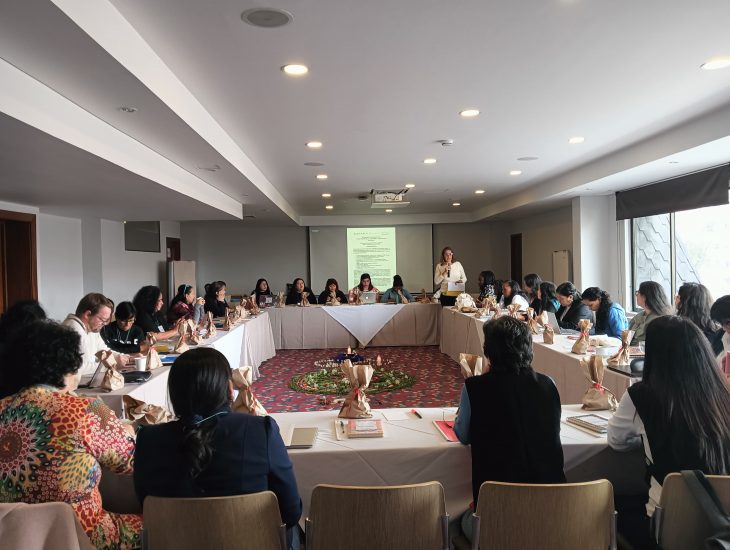On 16 and 17 February ICIP held a seminar entitled Business and Human Rights: Comparing Experiences. A View Focusing on the Extraterritorial Perspective at the Palace of Parliament of Catalonia. The event was organized in collaboration with the Directorate-General for Cooperation with the aim of addressing the impact of business on human rights and the environment.
The two-day seminar brought together twenty experts from around the world who are members of government administrations and institutions that work in the defense of human rights. The conference raised the main problems facing the relationship between Business and Human Rights and also provided an opportunity to learn about the most advanced initiatives in promoting respect for human rights by business enterprises. Examples of these initiatives include the National Action Plans adopted by various states, including the United Kingdom and Finland, and the process of creating a globally binding treaty based on the United Nations Guiding Principles on Business and Human Rights, endorsed in 2011, which set out the obligations of states to ensure the protection of human rights by companies. The seminar also addressed the extraterritorial obligations of the State, legal instruments for promoting and monitoring compliance with the standard of due diligence, mechanisms for access to justice and compensation from an extraterritorial perspective. Participants included speakers from the United Kingdom, Finland, Canada, Denmark, Belgium, the United States, Norway, and France.
Government strategy
The closing of the seminar took place on Friday 17 February and the closing remarks were delivered by the Minister of Foreign Affairs, Raül Romeva. Romeva explained the strategy that the department he directs will implement, through the Directorate-General for Development Cooperation, to promote the responsible internationalization of Catalan companies. He also said that the objective was to have this strategy ready “in July”. This strategy includes “the work which should enable the deployment of the center for the study and assessment of the impacts of Catalan companies with investments abroad” with the participation of Catalan civil society, a code of ethics for the protection of human rights and gender equality and specific mechanisms to ensure the protection of human rights defenders. The Parliament of Catalonia approved resolution 359/XI in November 2016 urging the Government to begin the work of creating this study center within eight months.
To implement this strategy, the minister said that all relevant stakeholders would be asked to participate: NGOs, companies, departments, trade unions and other key actors such as Chambers of Commerce. An internal working group will also be created comprising the Department of Foreign Affairs, through the Directorate-General for Cooperation, and the Department of Business and Knowledge. A proposal has been made to the Council for Cooperation and Development that the Council’s Business Awareness Working Group should become a space for Government consultation in this area.
Civil society demands
The seminar addressed the process being carried out in Catalonia to analyze the impact of Catalan companies that do business abroad with the roundtable “Catalan companies as a country brand: The Catalan case”. Felip Daza, member of the Catalan working group on Business and Human Rights organized by Lafede.cat and the Taula Catalana Coordinating Group for Peace and Human Rights in Colombia, called on the government of the Generalitat to “get to work” on the creation of the study and assessment center on the impact of Catalan companies doing business abroad. He added that it is a “great opportunity for Catalonia to become a global model”. Lafede.cat proposed that the center’s role should be the inspection of companies, support for victims of human rights violations to gain access to effective justice, and establishing sanctions mechanisms. The Catalan working group on Business and Human Rights brings together 120 civil society organizations and has collected the demands of communities affected by human rights violations in different parts of the world.
At the same session, Professor Antoni Pigrau, director of the ICIP program “Armed conflicts: law and justice”, presented the proposal to create a code of ethics on respect for human rights by Catalan companies doing business abroad. The Catalan Agency for Development Cooperation has commissioned Rovira i Virgili University in Tarragona to develop this project. In addition, the director of Business and Human Rights, Maria Prandi, explained the production process of a National Action Plan on Business and Human Rights at the Spanish level.
20.01.2017




